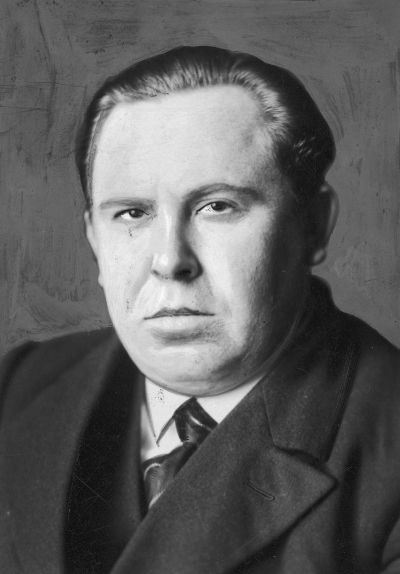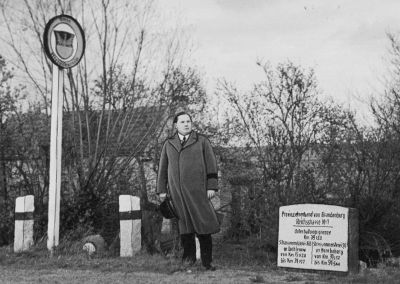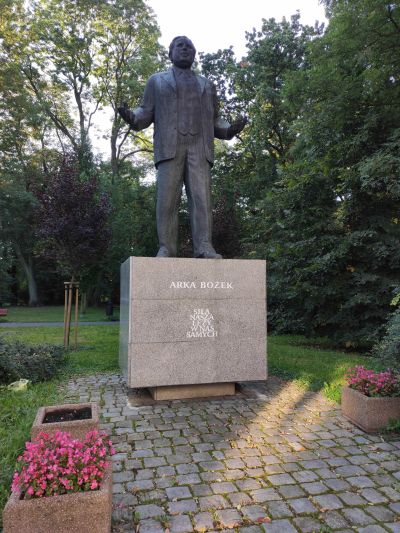Arka Bożek – Polish minority activist in Silesia, politician and publicist

In the 1920s, he continued to take an active part in election campaigns as a member of Polish election committees. He also ran, albeit unsuccessfully, in the elections to the Prussian state parliament as a representative of the farming community. Following the local elections of 1924, Bożek became the mayor of Markowitz, but the German authorities prevented him (and other elected Poles) from taking office quickly. It would take a fight in the courts and complaints to the Mixed Commission for Upper Silesia for this to be happen. From 1928 he was also a member of the provincial parliament in Oppeln and the district council in Ratibor, and held the office of mayor until 1933. During the global economic crisis, he made efforts to secure tax cuts for the farming population and lower prices for electricity in rural areas.
His considerable activism, his temerity and his penchant for criticising not only national conditions, but also social issues, occasionally caused controversy and were used by the Germans for personal attacks and attempts to discredit him, including in the media. At times, propaganda allegations even prompted some Polish activists, especially those with socially conservative views, to distance themselves from Bożek. His sharp tongue, which he deployed especially at political rallies, led to complaints and even brought him before the court in Kreuzburg (Kluczbork) in 1932, which was tasked with deciding whether he had insulted German President Paul von Hindenburg – Bożek was acquitted. He had a reputation for being trustworthy, personally honest, incorruptible and courageous, which was rather unusual for politicians at the time. In the late 1920s and early 1930s, when political rifts became apparent in Polish circles against the backdrop of the attitude towards political rivalry in Poland between the supporters of Wojciech Korfanty and the Sanacja (Engl. Sanation, colloquial term for the ruling camp in the Second Republic from 1926 to 1939), Bożek consistently took a position loyal to the association and repeatedly called for the unity of the Polish community in Silesia and throughout Germany to be preserved.
The political situation in Germany began to deteriorate in the early 1930s. During the election campaign in March 1932, in which Bożek ran again for the Prussian parliament, his farm was searched for alleged possession of weapons. Once again, the Polish list did not receive enough support to win even one seat. Voters, especially the younger generation, were no longer drawn to the Catholic Centre Party, but rather to far-right movements, including the NSDAP. In the parliamentary and local elections in March 1933, which were held under the repressive conditions of the rising National Socialist dictatorship, Bożek did not even make it into the provincial parliament; in any case, this no longer mattered as the political parties were dissolved and the seats declared invalid.
In the years that followed, work opportunities for Polish organisations and institutions were restricted, children and young people were indoctrinated with National Socialist ideology, intimidation by the SA and SS and discrimination against those who professed Polish identity became the order of the day. This was met with protest, unfortunately without success, by Arka Bożek and other Polish activists in the Mixed Commission, which existed between 1922 and 1937; even the temporary improvement in official German-Polish relations in the Oppeln region after 1934 made no difference. Bożek’s personal situation became increasingly precarious. In August 1937, a series of arrests and searches were carried out in Polish institutions and private homes, including the Bożeks’.
Despite these serious problems, preparations for the celebrations to mark the 15th anniversary of the ZPwN continued. Bożek was very active at the Polish Congress, which was held in Berlin in early March 1938. His public presence and journalistic activities attracted the attention of the Gestapo. On the last day of December 1938, the authorities ordered Bożek’s expulsion from the province of Silesia and at the same time banned him from other eastern provinces as well as Westphalia and the Rhineland, where most of the Poles living in Germany had settled. He was prohibited from giving public speeches. This came as a shock to both Bożek and his family. After bidding farewell to his wife and children, he travelled to Berlin in January 1939, where he came under Gestapo supervision.







